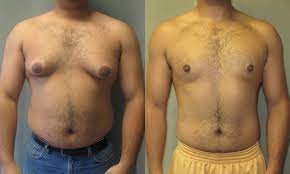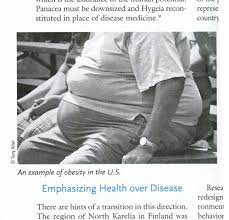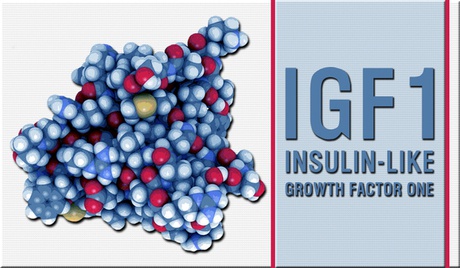Testosterone Trivia
Video Link: https://vimeo.com/187730098
Video Download: Some General Thoughts On Testosterone
Video Stream: Some General Thoughts On Testosterone

Testosterone Trivia
Most Americans think about Testosterone and immediately connect it to either aggression or sexuality. Although these are two huge aspects of Testosterone, it has a lot of different purposes in the human body.
Why is Testosterone linked to both sexuality and aggression?
Although there is no way to fully understand the link between these concepts, we can look back at human and evolutionary history to try to discern a complete picture.
Testosterone, Sex, and Aggression are likely linked because of the competitive nature of mating. Among the vast majority of animals, males are the suitors, and the female chooses a mate.
There are a lot of ways that male animals use Testosterone to try to get a leg up on their competition. This is why male and female animals are usually physically different, rather than having different sexual organs. Secondary sex characteristics develop primarily due to competition between males for the affection of a female.
Across a large segment of animals, especially mammals, this pattern of sexual competition results in displays of strength and dominance. As a result, male mammals tend to have larger muscles than their female counterparts and display more aggressive behavior.
Although we like to think we've developed beyond this evolutionary process, it still plays a particular role in our lives, whether we choose to recognize it or not.
Beyond the link between Testosterone, Aggression, and Sexual Competition, Testosterone plays a number of different roles in the health of both men and women. The rest of the article will feature more information about Testosterone and Health that you may find very interesting.
For Women, Love Induces Testosterone Production
Women that have just entered a new relationship experience a flux of Testosterone Production. This increase in Testosterone Release is much higher than is experienced by either single women or women that have been in a relationship for an extended period.
One study suggests that women release the highest levels of Testosterone in the initial three months of dating than any other time.
Interestingly enough, men experience the opposite effect. Men that have just entered a new relationship experience a reduction in Testosterone production. Similarly, however, after less than a year, Testosterone Levels return to their normal state.
production. Similarly, however, after less than a year, Testosterone Levels return to their normal state.
It makes sense. If a woman decides on a man, competing for his affection is in her best interest. In the case of a man, after he has won a woman's affection, he no longer has to compete with other men for her interest regularly.
Testosterone Burns Body Fat
One of the most noticeable physical issues related to Testosterone Deficiency is that it causes a man to have trouble losing weight. Clinical research has shown that Testosterone Hormone Replacement Therapy positively affects muscle-fat ratio, increasing metabolism and helping a man lose weight faster and more effectively.
The majority of studies corroborate the same evidence. Testosterone Treatments lead to a noticeable reduction in adipose fat. This is the most unhealthy form of fat that the body stores and the most difficult to burn. Adipose fat pools around the midsection, especially around the hips, thighs, and stomach.
Testosterone Replacement Therapy should not be considered solely for its capacity to induce weight loss, however. There is a limited body of research regarding the long-term use of Testosterone Hormone Replacement Therapy. It should only be used by men who suffer from clinically diagnosed Low-T, experiencing symptoms such as Erectile Dysfunction, loss of bone density, muscle atrophy, or fatigue.
Testosterone is Linked to Financial Success
Making money even has a positive effect on Testosterone Production. One study performed by researchers in Great Britain showed that financial traders experience significant Testosterone boosts solely on the quality of their financial performance that day. Men that experienced a successful day of trading earned a rush of Testosterone as a direct result.
The inverse was also found to be accurate; when men produced naturally high levels of Testosterone in the mornings, they made more money on average than when their Testosterone Levels were lower. This is strong evidence that Testosterone can directly influence success.
Researchers also found a correlation between experience and Testosterone Production among these traders. Traders that had been at the job longer displayed a stronger correlation between success and the rush of Testosterone and Elevated Testosterone Levels being a predictor for daily success.
It makes sense. Testosterone is not only linked to aggression but assertiveness. In the frantic trading atmosphere, it makes perfect sense that assertiveness breeds success. Also, Trading is one of the most competitive atmospheres outside of athletic competition.
Studies have repeatedly shown that asserting dominance over others through winning induces an incredible burst of Testosterone.
This creates a positive feedback loop, where successful people maintain higher levels of Testosterone than those who are not, leading to further success.
Testosterone Can Shrink your Testicles
Although Testosterone Hormone Replacement Therapy can lead to a number of highly beneficial effects, it does have the potential to lead to a few physical symptoms; the most noticeable is that the Testicles can shrink in size.
No health risk is associated with this shrinkage, but it does hurt fertility. Luckily, this effect is completely reversible, and after suspending therapy, the Testicles increase in size again, and sperm production increases as well. This does mean that men looking to conceive should not use Testosterone Replacement Therapy, however.
Another side-effect that occurs in some cases is that men can develop gynecomastia. Gynecomastia is a condition in which excess Testosterone is converted into Estrogen, which promotes an increase in breast size. This issue is also reversible and can be relieved simply by adjusting the cumulative dose of Testosterone.
Although Testosterone Hormone Replacement Therapy for Testosterone Deficiency is a safe and effective medical treatment, Testosterone Abuse and Overdose can develop other symptoms. In women, these changes are exceptionally apparent.
Overdose can develop other symptoms. In women, these changes are exceptionally apparent.
Testosterone abuse can cause women to start growing hair across their bodies, develop temporary male-pattern baldness, increase the size of the clitoris, and cause the voice to deepen. All of these effects can be resolved by suspending abuse, except in some cases, changes to the voice are permanent.
Both men and women who Abuse Testosterone are much more likely to experience issues such as increased aggression, mood swings, acne, and red blood cell count.
For men and women using Testosterone Treatments under the guidance and authorization of a qualified medical professional, the risk of side effects associated with abuse is negligible and can be treated quickly and effectively in the case they manifest.
Even Watching Sports Can Boost Testosterone
Testosterone and competition are intricately linked in males. As men prepare for any form of competition, they experience a sustained boost in Testosterone. This boost in Testosterone occurs regardless of the form of competition in question. Preparing for a high-stakes poker game leads to an increase in Endogenous Testosterone Production in the same way as training for the Olympics.
Men are just naturally wired in this way. It makes sense. Because of our complex and advanced nature, assertiveness and dominance can manifest themselves in countless ways. The brain considers mental competition just as crucial as physical competition and adjusts hormone release accordingly.
A notable side-effect of this pattern of Testosterone Production is that you don't even have to necessarily participate in an event to get a burst of Testosterone. Studies show that men that watch sports experience changes in Testosterone Levels in relationship to the success of their favorite teams.
In one study, researchers analyzed a group of male fans who watched a World Cup soccer game between Italy and Brazil. Researchers discovered that after Italy lost, their fans experienced a drop in Testosterone Production, while the Brazil Fans were awarded a boost of Testosterone.
These changes in Testosterone for both parties mirror patterns of Testosterone Release associated with dominance and submission in other species.
Obesity and Fat Limit Testosterone Production
Testosterone Production is strongly correlated with body fat percentage. Men of a healthy weight produce more Testosterone than men that are obese, even after other factors have been controlled for.
There are two processes associated with this reduction in Testosterone Production. First, Fat cells have an unfortunate capacity to generate Estrogen. They absorb Testosterone and Testosterone Precursors, convert them into Estrogen, and release them into the human body. For men that are obese, this can have a powerful impact on healthy Testosterone production and even lead to specific symptoms of feminization.
this can have a powerful impact on healthy Testosterone production and even lead to specific symptoms of feminization.
Obesity is also associated with an increase in general inflammation. Although many factors related to obesity contribute to inflammation, the strongest is that obesity encourages the increased production of cortisol, which is produced from DHEA, a necessary precursor to Testosterone.
In addition to this, stress causes an increase in fat storage, which further reduces the body's ability to produce and utilize Testosterone effectively.
Your Hands Explain Your Hormones
In both boys and men, the pointer on the right hand is almost always shorter than the ring finger on the same hand. This is not true to nearly the same extent for girls. This isn't a phenomenon that is specific to humans, however. In many animals (including rats) that have five fingers, this same difference between males and females of the species persists.
Researchers have discovered that among all species in which this phenomenon occurs, it clearly shows that the animal was exposed to elevated levels of Testosterone in utero. The more Testosterone you receive before you are born, the more significant the difference between the lengths of the ring and pointer finger tends to be.
There is even evidence from a British study that male businessmen with the most significant difference between the lengths of ring and pointer tended to be more profitable in business and remained in business longer than their counterparts.
Testosterone Can be Difficult to Measure Effectively
Testosterone Levels are dependent upon a number of different factors, and not all of them are static. For example, Testosterone Production peaks in the morning, meaning that some that display clinically low levels of Testosterone at night may have normal levels during the morning.
For this reason, most physicians suggest that blood testing occurs in the morning rather than in the afternoon or evening.
Also, the thresholds for Testosterone Deficiency are not fully standardized, meaning that what qualifies as a deficiency for one doctor may not necessarily hold for another. The closest to a standard that we have regarding American Testosterone Treatment is that any level below 300 nanograms per deciliter is generally considered low.
The normal range varies widely depending on age, health, and other factors. Average Testosterone Production ranges from 300 ng/dl to 1000 ng/dl.
Because of this enormous level of variability, it is necessary to display both signs of Testosterone Deficiency and low or borderline levels of Testosterone Production. Many physicians also suggest that multiple blood samples may be used to maximize the value of the diagnosis.
The Benefits of Testosterone are Not Established for Healthy Men
It is believed that around three-quarters of men over sixty-five have perfectly normal hormone levels. Although Testosterone Hormone Replacement Therapy can provide unique and life-changing benefits for men that suffer from Testosterone Deficiency, there has not been sufficient study among healthy patients to recommend the use of Testosterone for men that do not display a physical need.
For men experiencing Testosterone Deficiency, Bio-Identical Testosterone can provide numerous benefits, including increased sex drive, sexual ability, and bone mineral density, while promoting muscle and fat maintenance.
It can even improve psychological health, alleviating mild to moderate depression while helping to counteract feelings of stress and anxiety.
Men with Certain Heart Conditions Should Avoid Testosterone Hormone Replacement
Testosterone Treatments are associated with a slightly elevated risk of heart conditions such as stroke and heart attack. This is because Testosterone treatments increase red blood cell counts as a result of therapy.
Testosterone Injections seem to increase RBC Counts more than other forms of therapy. Because of this risk of heart issues, men generally in feeble health should avoid Testosterone Replacement unless their doctor recommends it.
It appears that the bulk of risk associated with Testosterone affects men that are already at high risk of heart attack or stroke.
Testosterone Replacement Does not Increase the Risk of Prostate Cancer.
In the past, medical professionals and researchers hypothesized that Testosterone Replacement could contribute to an increased chance of prostate cancer. The main reason why physicians and scientists believe that Testosterone Therapy could prevent cancer is that Testosterone Replacement often leads to an increase in a chemical known as PSA or Prostate-Specific Antigen.
This chemical is released only by the prostate; men with prostate cancer produce more of this chemical than healthy males. The last decade of research has shown that, although Testosterone boosts PSA production, this has no association with any enhanced cancer risk.
Testosterone Replacement Therapy can increase the prostate size in older males, however, leading to a condition known as Benign Prostate Hyperplasia. The only primary symptom of this condition is that it becomes harder to urinate, and there are medical treatments that can alleviate the symptoms.
There is an ongoing debate among medical professionals regarding whether prostate cancer should be treated because it becomes ubiquitous with age but develops at a prolonged rate. At this point, men with prostate cancer should avoid Testosterone Replacement Therapy.
Sleep Apnea Causes Low-T
Males that experience sleep apnea has a significantly increased likelihood of experiencing Low-T. For men with Testosterone Deficiency and Sleep Apnea, it can be effective to treat both conditions simultaneously to promote excellent health effectively.
Although both conditions can be treated simultaneously, it is essential to realize that Testosterone Treatments can complicate Sleep Apnea if the sleep apnea remains untreated. This is why men need to receive a complete physical and medical history before initiating Testosterone Replacement Therapy.
By ruling out other medical conditions, your doctor can help confirm whether Bio-Identical Testosterone Treatments are the best source of action to improve your health.

- 0001 What Are Normal Testosterone Levels For Men And Women Throughout Life? [Last Updated On: February 14th, 2025] [Originally Added On: May 26th, 2020]
- 0002 Top Tips For Boosting Testosterone Naturally [Last Updated On: September 27th, 2025] [Originally Added On: May 27th, 2020]
- 0003 The Testosterone Factor [Last Updated On: October 28th, 2025] [Originally Added On: May 28th, 2020]
- 0004 Testosterone Can Help Relieve The Menopause Symptom Of Hot Flashes [Last Updated On: February 14th, 2025] [Originally Added On: May 29th, 2020]
- 0005 How Does Low Testosterone Cause Infertility? [Last Updated On: February 8th, 2025] [Originally Added On: May 30th, 2020]
- 0006 The Benefits Of Testosterone Therapy For Prostate Cancer [Last Updated On: February 14th, 2025] [Originally Added On: May 31st, 2020]
- 0007 Is Testosterone Replacement A Valid Diabetes Treatment? [Last Updated On: February 15th, 2025] [Originally Added On: June 1st, 2020]
- 0008 Testosterone Shock Therapy May Be An Effective Prostate Cancer Treatment [Last Updated On: February 5th, 2025] [Originally Added On: June 2nd, 2020]
- 0009 Testosterone Replacement Therapy Is Safe For The Heart [Last Updated On: February 14th, 2025] [Originally Added On: June 3rd, 2020]
- 0010 Testosterone Replacement Therapy [Last Updated On: October 22nd, 2025] [Originally Added On: June 4th, 2020]
- 0011 Testosterone Patches [Last Updated On: February 8th, 2025] [Originally Added On: June 5th, 2020]
- 0012 Testosterone Overview [Last Updated On: February 13th, 2025] [Originally Added On: June 6th, 2020]
- 0013 Testosterone Levels And Making Money [Last Updated On: September 10th, 2025] [Originally Added On: June 7th, 2020]
- 0014 Testosterone Enanthate [Last Updated On: September 9th, 2025] [Originally Added On: June 8th, 2020]
- 0015 Increased Awareness Of Low-t Helps Men Live Healthier Lives [Last Updated On: February 7th, 2025] [Originally Added On: June 9th, 2020]
- 0016 How Does Low-t Lead To Erectile Dysfunction? [Last Updated On: February 7th, 2025] [Originally Added On: June 10th, 2020]
- 0017 Testosterone Basics [Last Updated On: February 6th, 2025] [Originally Added On: June 11th, 2020]
- 0018 How Does Testosterone Impact Prostate Health? [Last Updated On: February 6th, 2025] [Originally Added On: June 12th, 2020]
- 0019 Testosterone And Other Sex Hormones Impact Asthma Response Dependent On Sex [Last Updated On: February 5th, 2025] [Originally Added On: June 13th, 2020]
- 0020 Recognizing Subtle Symptoms Of Testosterone Deficiency [Last Updated On: February 4th, 2025] [Originally Added On: June 15th, 2020]
- 0021 The Health Benefits Of Testosterone And Sleep Are Interconnected [Last Updated On: February 3rd, 2025] [Originally Added On: June 17th, 2020]
- 0022 How Can I Restore My Testosterone Production Naturally? [Last Updated On: September 4th, 2025] [Originally Added On: June 18th, 2020]
- 0023 Low-t Quiz [Last Updated On: September 3rd, 2025] [Originally Added On: June 19th, 2020]
- 0024 Low Testosterone Might Mean Poor Sleep Need Testosterone Hormone Injections [Last Updated On: September 2nd, 2025] [Originally Added On: June 20th, 2020]
- 0025 Low Testosterone Contributes To Frailty With Age [Last Updated On: September 1st, 2025] [Originally Added On: June 21st, 2020]
- 0026 Low Testosterone Affects A Third Of Young Men With Type 2 Diabetes [Last Updated On: August 31st, 2025] [Originally Added On: June 22nd, 2020]
- 0027 Japanese Testosterone Study Proves Physical And Psychological Benefits [Last Updated On: August 30th, 2025] [Originally Added On: June 23rd, 2020]
- 0028 Intramuscular Injections Are Safer Procedures [Last Updated On: August 29th, 2025] [Originally Added On: June 24th, 2020]
- 0029 Injecting Testosterone (im) [Last Updated On: October 24th, 2025] [Originally Added On: June 25th, 2020]
- 0030 Injectable Testosterone And Testosterone Cream [Last Updated On: February 14th, 2025] [Originally Added On: June 26th, 2020]
- 0031 Indiana Jones Vs. Rambo (hgh Testosterone) [Last Updated On: August 28th, 2025] [Originally Added On: June 27th, 2020]
- 0032 How Much Does Testosterone Control Men's Behavior? [Last Updated On: August 27th, 2025] [Originally Added On: June 28th, 2020]
- 0033 Getting To The Bottom Of Low-t Under-reported Sources Of Testosterone Deficiency [Last Updated On: February 14th, 2025] [Originally Added On: June 29th, 2020]
- 0034 How To Manage And Overcome Testosterone Deficiency [Last Updated On: August 26th, 2025] [Originally Added On: June 30th, 2020]
- 0035 Clomiphene Low-testosterone Andropause Treatment [Last Updated On: February 3rd, 2025] [Originally Added On: July 1st, 2020]
- 0036 How Do Synthetic Chemicals Impact Testosterone Secretion? [Last Updated On: August 18th, 2025] [Originally Added On: July 2nd, 2020]
- 0037 Interest In Bio-identical Testosterone Is Skyrocketing [Last Updated On: August 25th, 2025] [Originally Added On: July 3rd, 2020]
- 0038 Axiron Spray-application Testosterone Replacement Therapy [Last Updated On: August 24th, 2025] [Originally Added On: July 4th, 2020]
- 0039 Andropause: Male Menopause [Last Updated On: September 14th, 2025] [Originally Added On: July 5th, 2020]
- 0040 Testosterone Deficiency Treatment Options [Last Updated On: August 21st, 2025] [Originally Added On: July 6th, 2020]
- 0041 The Facts About Testosterone Hrt For Low-t [Last Updated On: August 22nd, 2025] [Originally Added On: July 7th, 2020]
- 0042 Misconceptions About Testosterone Replacement Therapy [Last Updated On: August 23rd, 2025] [Originally Added On: July 8th, 2020]
- 0043 Testosterone Replacement Therapy Facts And Myths [Last Updated On: October 4th, 2025] [Originally Added On: July 9th, 2020]
- 0044 Testosterone Injections For Testosterone Deficiency [Last Updated On: September 18th, 2022] [Originally Added On: July 10th, 2020]
- 0045 Testosterone Replacement Therapy May Help Aging Males Prevent Diabetes [Last Updated On: August 19th, 2025] [Originally Added On: July 11th, 2020]
- 0046 The Benefits Of Testosterone Replacement Therapy For Women [Last Updated On: August 17th, 2025] [Originally Added On: July 13th, 2020]
- 0047 How Can Testosterone Hrt Improve My Life Via Quality Low-t Treatments [Last Updated On: September 13th, 2025] [Originally Added On: July 14th, 2020]
- 0048 Frequently Asked Questions About Testosterone [Last Updated On: August 20th, 2025] [Originally Added On: July 15th, 2020]
- 0049 Bio-identical Testosterone Cypionate Injections [Last Updated On: August 16th, 2025] [Originally Added On: July 16th, 2020]
- 0050 All About Testosterone Creams [Last Updated On: August 13th, 2025] [Originally Added On: July 17th, 2020]
- 0051 Low Testosterone Treatment Protocols [Last Updated On: April 1st, 2025] [Originally Added On: July 19th, 2020]
- 0052 Testosterone Deficiency Drains Your Energy [Last Updated On: February 13th, 2025] [Originally Added On: July 21st, 2020]
- 0053 What Is Testosterone? [Last Updated On: August 11th, 2025] [Originally Added On: July 23rd, 2020]
- 0054 Eleven Signs Of Testosterone Deficiency [Last Updated On: March 30th, 2025] [Originally Added On: July 26th, 2020]
- 0055 Hypertension-Associated Cardiovascular Risks Increase Due To Both Low-T And High Testosterone [Last Updated On: February 18th, 2025] [Originally Added On: April 22nd, 2021]
- 0056 Everything to Know About Androgel [Last Updated On: March 27th, 2025] [Originally Added On: July 8th, 2021]
- 0057 Kinds of Testosterone Therapy – Which Is Right for You? [Last Updated On: March 21st, 2025] [Originally Added On: August 28th, 2021]
- 0058 This Study Says High Protein Diet May Suppress Testosterone Levels [Last Updated On: February 20th, 2025] [Originally Added On: March 28th, 2022]
- 0059 Testosterone and Estrogen Deficiency Associated With Increased Risk of Rotator Cuff Surgery [Last Updated On: February 14th, 2025] [Originally Added On: April 26th, 2022]
- 0060 Low Testosterone Accelerates Aging [Last Updated On: March 20th, 2025] [Originally Added On: May 3rd, 2022]
- 0061 Low Testosterone Endangers Your Health [Last Updated On: February 14th, 2025] [Originally Added On: May 14th, 2022]
- 0062 Testosterone Helps Modulate Immune Activity in the Digestive System [Last Updated On: February 14th, 2025] [Originally Added On: May 18th, 2022]
- 0063 Did you know: Testosterone treats depression! [Last Updated On: November 6th, 2025] [Originally Added On: May 19th, 2022]
- 0064 Benefits of Fenugreek – Boost Testosterone and More [Last Updated On: February 14th, 2025] [Originally Added On: May 23rd, 2022]
- 0065 Testicle Tanning: What is Tucker Carlson Talking About? [Last Updated On: April 16th, 2025] [Originally Added On: June 3rd, 2022]
- 0066 Using Testosterone to Combat Memory Issues in Diabetics [Last Updated On: February 14th, 2025] [Originally Added On: August 16th, 2022]
- 0067 About 40% of Men Have Low-T – and it Doubles the Risk of Severe COVID [Last Updated On: February 25th, 2025] [Originally Added On: September 21st, 2022]
- 0068 The Foods To Boost Your Testosterone…And The Foods To Avoid [Last Updated On: November 4th, 2025] [Originally Added On: September 30th, 2022]
- 0069 Tlando Testosterone: An Innovative Oral Therapy for Low-T [Last Updated On: November 3rd, 2025] [Originally Added On: October 1st, 2022]
- 0070 Testosterone Replacement Therapy (TRT) Explained [Last Updated On: April 8th, 2025] [Originally Added On: October 12th, 2022]
- 0071 Examining The Link Between Testosterone and Employability [Last Updated On: February 18th, 2025] [Originally Added On: November 8th, 2022]
- 0072 Standard Measure of Low Testosterone Doesn't Apply to Young Men [Last Updated On: March 12th, 2025] [Originally Added On: November 8th, 2022]
- 0073 Surprising Things that Cause Men’s Crashing Testosterone [Last Updated On: March 17th, 2025] [Originally Added On: January 5th, 2023]
- 0074 Understanding the Correlation between Testosterone Levels and Job Performance [Last Updated On: February 9th, 2025] [Originally Added On: February 9th, 2025]
- 0075 Link between Low Testosterone and Severe COVID Symptoms in Men [Last Updated On: February 12th, 2025] [Originally Added On: February 12th, 2025]
- 0076 The Good Job Grip: Is Testosterone the Key? [Last Updated On: February 13th, 2025] [Originally Added On: February 13th, 2025]
- 0077 Importance of Nutritional Balance in a Healthy Diet [Last Updated On: February 14th, 2025] [Originally Added On: February 14th, 2025]
- 0078 Invigorating Power of the Fenugreek Plant: A Natural Testosterone Energizer and More [Last Updated On: February 14th, 2025] [Originally Added On: February 14th, 2025]
- 0079 Unlocking the Testosterone Treasure: A Panacea for Cognitive Woes in Diabetic Patients [Last Updated On: February 14th, 2025] [Originally Added On: February 14th, 2025]
Word Count: 2326






